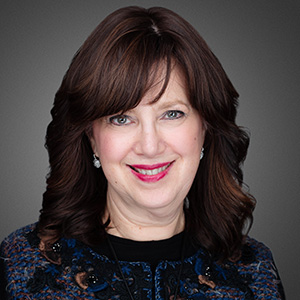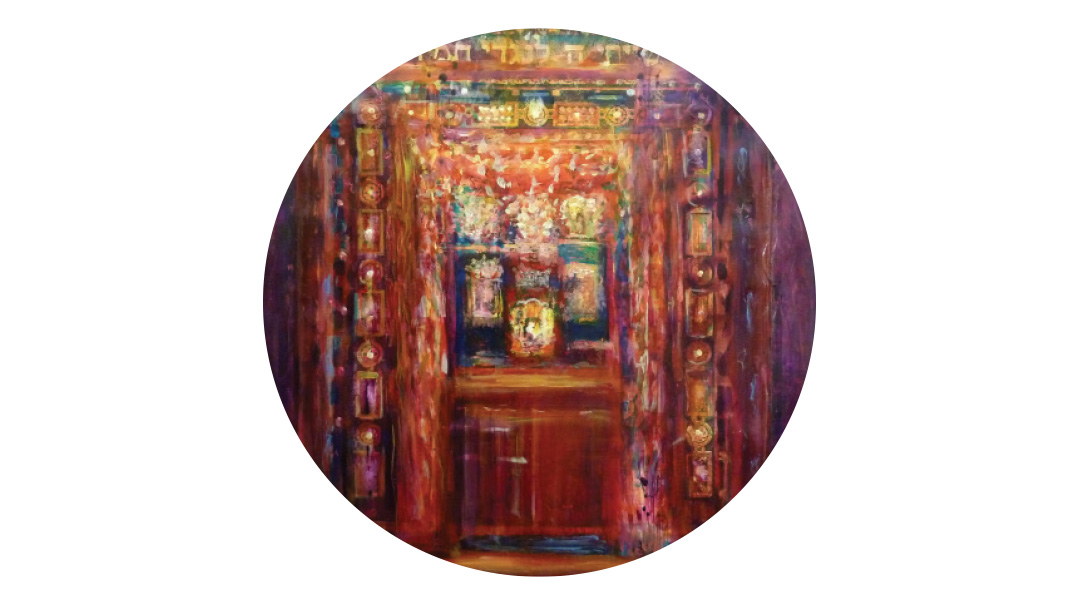The Stories of Our Lives

Though our lives sometimes feel long and hard, the stories of Bereishis teach us that our lives, like the lives of our forefathers, have purpose
Whether or not you’re a great weaver of tales, you’re a storyteller.
We all take the events of our lives, pick out the experiences we feel impacted us, and turn them into a narrative. When you meet someone new, you’re likely to tell them a piece of your story to give them an inkling of who you are, just as you’ll ask them for their story.
Our stories aren’t just the facts of our lives; it’s how we weave those facts together into a narrative that says something about us. A young woman I know went on a date with a brilliant budding scholar. Prepping him for his first date ever, his mother told him to talk about himself. She probably meant that he should be open and let his date get to know him.
Understanding his mother’s words literally, he came on the date and started talking about himself. Starting with early memories of nursery school, he went through the events of each year of his schooling. Since he had a fabulous memory, after three hours, he was up to the events that occurred when he was in the eighth grade.
About five minutes before arriving back at her home, his date interrupted him and said, “Listen, your mother will probably want to know something about me. I grew up in Florida, I went away for high school to Bais Yaakov in Baltimore, I went to Bnos Chava sem, and now I’m studying to be an optometrist.”
Needless to say, this relationship didn’t go anywhere. For all the facts that were exchanged, they didn’t leave the date knowing much about each other. Stories reflect how we interpret what has occurred in our lives, and express the beliefs we have about our place in the world and how we presume future events will unfold.
Stories as Filters
Some people tell stories that start out bad but end up good. Positive psychologists call these redemptive stories. Then there are people who, no matter what wonderful event occurs in their lives, they view it negatively; something always happens that taints the good, so their story ends on a negative note. Those are termed contamination stories.
As life unfolds, what we make of each experience, and therefore how we respond, will be determined by our story line.
“She invited the whole neighborhood to her simchah, but not me. What else is new?” said Suri.
Read: I’m not a person people like or think of. No surprise there. Suri’s narrative is defeatist; life is beating her. The events of her life get filtered through that lens, thereby reinforcing her negative narrative.
But our narratives sometimes keep us from the truth. Maybe Suri’s invitation just got lost in the mail? We can get stuck in our own story without realizing; other interpretations of events that could lead us to greater self-awareness don’t even occur to us. This narrowness can cut us off from opportunities Hashem sends our way.
We develop narratives in our relationships as well. Have you ever heard (or told yourself) any of the following?
“He’s a ‘lo yutzlach.’ He’ll never amount to anything.” Read: When I married him, I got trapped.
“I’m a loser. Everyone else has nachas from their kids except me.” Read: I don’t deserve good in my life.
“I’ll never lose the baby weight; I’ll always live in a fat person’s body.” Read: I have no control over this outcome.
“My spouse will never understand me; I gave up trying to explain myself a long time ago.” Read: I’m long-suffering, a victim.
Once you recognize the nature of your narrative, you can see how it influences your reactions, your behavior, and even others’ reactions to you.
A Path of Purpose
We’re in the middle of reading Sefer Bereishis, the stories that form the backdrop of our emunah. Each of the Avos and Imahos have a different story. What can we learn from the fact that the Torah tells stories? And how should these stories influence our own narratives?
The Ramban, in his introduction to the Torah, quotes the verse in which Hashem tells Moshe to come up on Har Sinai to receive the Torah: “And I’ll give you the tablets of stone and the Torah and the commandments that I have written, to teach them.”
The Ramban explains: “The tablets of stone include their content, as in the Ten Commandments. ‘The commandments’ include all the mitzvos, positive and negative. If so, the phrase ‘and the Torah’ must include the stories from the beginning of Bereishis [and is called Torah, teachings] because these stories teach people the ways of faith.” (Translation of Rabbi Ezra Bick.)
We need the stories in Sefer Bereishis to learn to see our own stories through faith. The goal isn’t just to develop emunah that lives in our intellect, but to cultivate emunah that’s so much a part of us that it serves as a lens through which we filter life’s events.
The first Rashi on Chumash asks: Why do we need the stories? Why doesn’t the Torah start with the first mitzvah given to the Jewish nation? Rashi answers that it was to teach us that Hashem created the world, takes it from whom He wants and gives it to whom He wants, and therefore the Land of Israel is ours.
From the beginning we learn that there’s a point to the stories. They’re leading somewhere. History is a process that has a purpose that will eventually be realized. Though our lives sometimes feel long and hard, the stories of Bereishis teach us that our lives, like the lives of our forefathers, have purpose, and that we’re on a path toward that purpose.
Our narratives are going to be congruent with reality to the extent that we’ve developed our emunah and our middos. The inner work we haven’t done, or negativity we haven’t excised from our personalities, will skew our interpretation of the events of our lives, creating a narrative that’s just not true.
We then respond to people and events in a way that isn’t consistent with what really occurred. We attribute motives to people when they didn’t have those motives at all. If the shadchan only cares about the shadchanus gelt, the doctor only cares about getting his name in the news, and my daughter’s teacher hates her, we’ve cut ourselves off from any benefit we could derive from that person because of a perception that says more about us than about the reality.
Improving Our Interpretation
When my family was young, we lived out of town. There was one day school, and it was hard to find frum teachers. As an observant teacher, I was asked to do a seminar for the not-yet-frum preschool teachers about how to teach the parshah stories in Sefer Bereishis. Having had a good chinuch (thank you, Mom and Dad!), it didn’t occur to me that anyone would object to teaching Torah stories to young children, and I was unprepared for the vehemence of the objections.
“I will not tell a story about a mother who teaches her child to be a trickster” (Yaakov getting the brachah from his father). “I will not tell the story of brothers throwing their sibling into a pit! What kind of values would I be teaching?”
To approach Torah without the lens of our Sages opens our forefathers’ lives to grave misinterpretation. When we take in the perspective of Chazal, we gain tools to understand the lives of our Avos, as well as the stories of our own lives.
We must believe in our ability to edit our narrative. While the situations of our lives are not always of our choosing, the story we tell about the situation is up to us.
How can we help our stories be more real?
1. Never take things at face value. It’s easy to jump to a conclusion. Rav Wolbe ztz”l, in Alei Shur (Vaadim on Emes) says that emes is always hidden in This World. We have to be willing to go deeper in order to find it. Events have many contributing factors, and people are complex. When a person leaves the world, we’re told not to exaggerate too much in eulogizing them, the thought being that the words spoken will become the standard to which the person is held in Shamayim, and that may not be good for them. However, we’re permitted to exaggerate a little, because every human being is so much greater than we comprehend, so your words are likely to be true. If your narrative is based on a superficial view of people and events, it needs to be questioned.
2. Do the work. Negativity taints our perception and takes away our objectivity. If your stories are always contaminated, if you always anticipate that something will go wrong, and assume you’ll always get the short end of the stick, realize that your negativity is making your life more difficult than it needs to be. Cultivating the middah of ayin tovah trains you to absorb the positive rather than the negative, even though you have a keen eye and you notice everything. It creates a greater conduit for brachah in your life.
3. Resolve to edit how you interpret what happens to you. The Chofetz Chaim teaches us that when we give people the benefit of the doubt, the story we create in our minds regarding the possible positive motives the person had for their behavior that appears so negative is likely to be closer to the truth than the negative reasons you were so sure you knew. So, try a positive narrative on for size. Make up the wildest positive story you can out of recent events. It will probably feel uncomfortable, like a coat that’s way too big. But if you stick with it, you’ll grow into that coat, and you might find yourself thinking kindlier of others — and possibly yourself.
The Torah and its stories are the ultimate redemptive narrative. From the first pasuk, the Torah hints to the four bitter exiles we’ll endure, foretelling the struggles we’ll face as a nation. Yet before we even finish the pasuk, the Torah tells us, “v’ruach Elokim merachefes al penei hamayim — the spirit of Hashem was hovering over the water” — a hint to the ultimate Redemption, and a comfort that Hashem is with us throughout.
And that’s our story.
Debbie Greenblatt is a senior lecturer for the Gateways organization and a teacher of both observant and not-yet-observant Jewish women for over 30 years. Debbie’s lecture topics include Jewish texts, Jewish thought, and relationships.
(Originally featured in Family First, Issue 769)
Oops! We could not locate your form.






